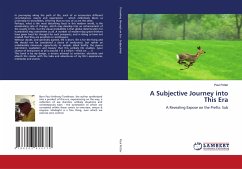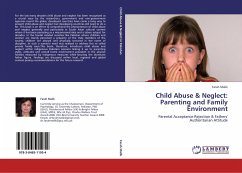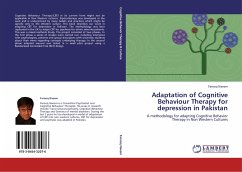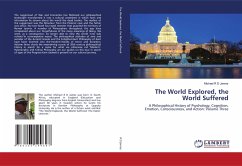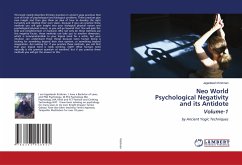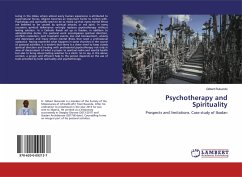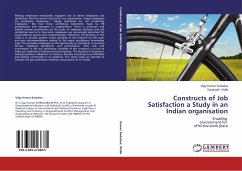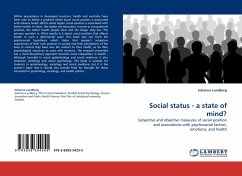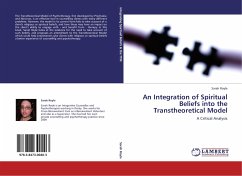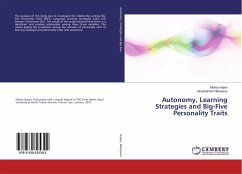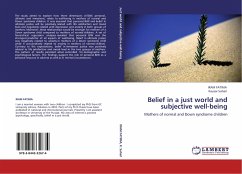
Belief in a just world and subjective well-being
Mothers of normal and Down syndrome children
Versandkostenfrei!
Versandfertig in 6-10 Tagen
38,99 €
inkl. MwSt.

PAYBACK Punkte
19 °P sammeln!
The study aimed to explore how three dimensions of BJW, personal, ultimate and immanent, relate to well-being in mothers of normal and Down syndrome children. It was assumed that personal BJW and belief in ultimate justice will be positively related with life satisfaction and mood level and negatively related with depression and anxiety in both groups of mothers. Moreover, these relationships would be stronger for mothers of a Down syndrome child compared to mothers of normal children. A set of hierarchical regression analyses revealed that personal BJW was the strongest predictor of all aspec...
The study aimed to explore how three dimensions of BJW, personal, ultimate and immanent, relate to well-being in mothers of normal and Down syndrome children. It was assumed that personal BJW and belief in ultimate justice will be positively related with life satisfaction and mood level and negatively related with depression and anxiety in both groups of mothers. Moreover, these relationships would be stronger for mothers of a Down syndrome child compared to mothers of normal children. A set of hierarchical regression analyses revealed that personal BJW was the strongest predictor of all aspects of well-being. Belief in ultimate justice was negatively related to anxiety in mothers of a Down syndrome child while it was positively related to anxiety in mothers of normal children. Contrary to the expectations, belief in immanent justice was positively related to life satisfaction and mood level in the two groups of mothers. The pattern of results persisted when controlled for demographic and psychological factors. The findings support the role of personal BJW as a personal resource in adverse as well as in normal circumstances.



